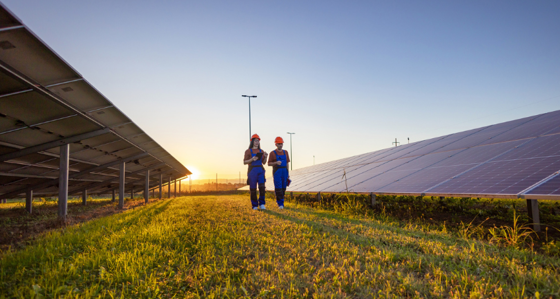
The innovations we need to combat climate change are already here. So why isn't more progress being made?
10 November 2021
Day 9 of COP was dedicated to Science and Innovation and one of the big news items from the day was the publication of Climate Action Tracker’s report. Their view is that current activity to limit climate change will result in a temperature rise of over 2.4 degrees, clearly highlighting that governments, businesses, and indeed individuals have much further to travel to prevent a climate disaster. Whilst this does contrast with the more hopeful message issued earlier this week by IEA that we have a chance of moving to 1.8 degrees world, both tracking outcomes signify there is a lot of work to be done.
Technology and innovation are key to this. Yet, at COP we heard from Patrick Vallance, Chief Scientific Advisor to the UK Government, that all of the technologies we need to combat climate change “are here or in development” so why isn’t more progress being made?
One issue is the innovation “valley of death” that stops good ideas being commercialised. What does this mean? Well, whilst the technologies exist, many aren’t at scale, aren’t cheap enough, or haven’t made it through to widespread consumer proposition.
The traditional challenge of the “valley of death” is one for government, and much of the funding announced by governments is targeted at keeping innovations funded until they can scale. The difficulty for governments is keeping programmes effective as they scale massively with the influx of new investment. In our experience this is possible but it requires a rigorous commercial and project management approach. In the private sector, the ‘valley of death’ looks different. Here, the place where innovation often dies is between the innovation lab and the busy operation. Baringa has supported a number of clients in assessing markets and making great ideas live consumer propositions notably in flexibility and hydrogen.
Crossing the valley of death
Both government and private companies must cross their respective ‘valleys of death’ if we’re to limit the most destructive impacts of climate change. Baringa has partnered with a multitude of clients to enable them to do this successfully across a range of innovations. In our government practice, for instance, we are focusing on various areas where existing innovations can help, including:
- Bioenergy
- Nuclear including small modular reactors
- Floating Offshore Wind and repowering onshore wind
- Heat: biomass boilers, solar heating, heat pumps, heat distribution
- Hydrogen supply and use
Contact Tom Hargreaves to discuss how we can support you in mobilising technology and innovation effectively to combat climate change or listen to our Energy Innovators podcast which explores the latest developments in these areas in more detail.
Related Insights

Dissecting the REMA decision
Three years in the making, the Review of Electricity Market Arrangements (REMA) decision has now been published: the UK Government has decided to retain the national wholesale price.
Read more
What might a reformed GB national power market look like under REMA?
Discover how a reformed national market is likely to include significant changes to current market arrangements, with material impacts for market participants.
Read more
Investing in uncertainty: European power market outlook 2025
Our latest outlook points to a more uncertain energy transition, shaped by political and economic volatility across Europe in the form of Trade Wars, Populism and Remilitarisation.
Read more
REMA and investing in GB power market under uncertainty
Learn about the opportunities and challenges of investing in the GB power market under uncertainty and how Baringa can help
Read moreIs digital and AI delivering what your business needs?
Digital and AI can solve your toughest challenges and elevate your business performance. But success isn’t always straightforward. Where can you unlock opportunity? And what does it take to set the foundation for lasting success?